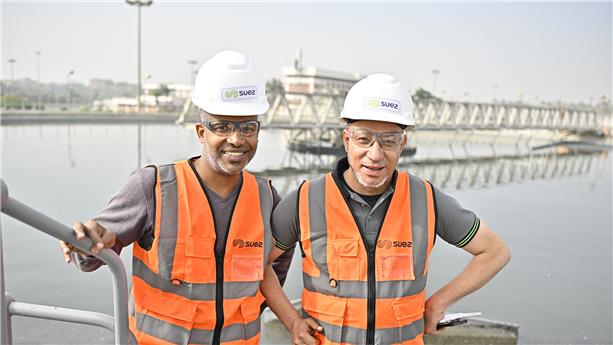Created by SUEZ and SUEZ Foundation alongside AgroParisTech, the partnership-based and world renowned AgroParisTech “SUEZ-Water for All” chair is an answer to climate and urban planning challenges in emerging and developing countries. It provides high-level training programs for managers and executives from the public or private water sector, to address specific issues from urban drinking water and sanitation services.
Carried by a renewed partnership between AgroParisTech, SUEZ and SUEZ Foundation, the French Development Agency and ESSEC Business School since 2020, the Chair has trained over 300 managers and executives since 2009, coming from Asia, Africa or the Caribbean, be it in the International Executive Master “Water for All” – OpT, seminars for decision-makers or short trainings, in Montpellier, France or Africa and Asia’s major cities. Building academic and educational partnerships with universities and services in the global South (in Dakar, Senegal, and Koumasi, Ghana), the chair provides unique strategic training given by water experts.
The chair’s programs are specifically designed to address urban drinking water and sanitation services in developing or emerging countries’ problems, bearing in mind their environmental and demographic situations.
In fast-growing surroundings, these services should develop strategic visions superior to 5 or 10 years, taking into consideration major challenges such as climate change, scarcity of water resources, extremely rapid urbanization associated to population growth.
The chair is dedicated to professionals playing a major role in
conducting reforms and change management in the water and sanitation sector. Thus, it contributes to the UN SDGs, mainly to Goal 6 “Access to safe water and sanitation”:
- By increasing the skills of urban water and sanitation managers
- Through training and knowledge sharing
- Contribution to research in the field
All 47 graduates (18 of whom are women) of the “Dr Letitia A. Obeng promotion, session 2021-2022” have formed a strategic vision for their services that they will implement as managers upon their return. They have developed every capacity to establish and have a real impact on water and sanitation management in their respective countries.
